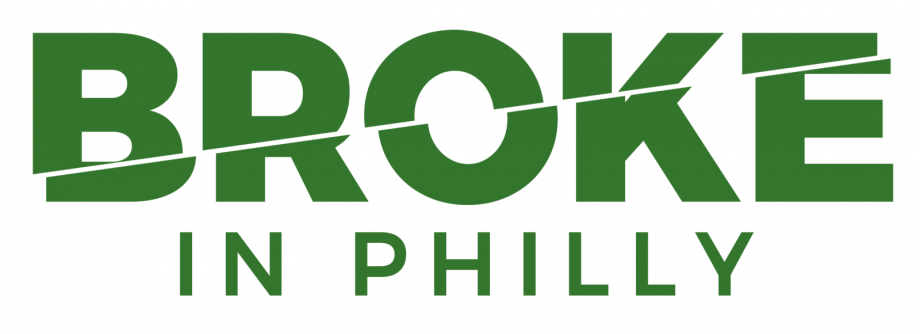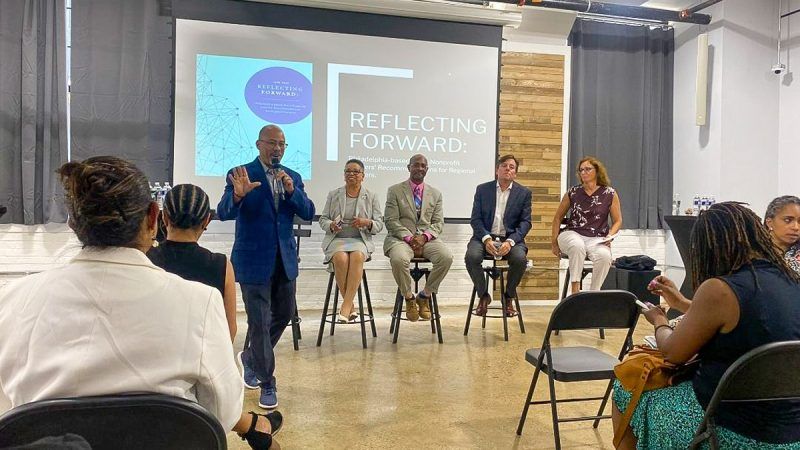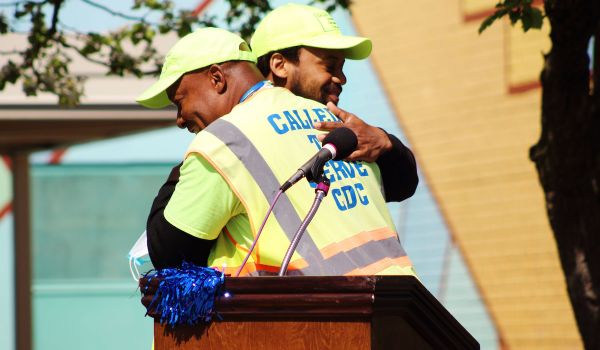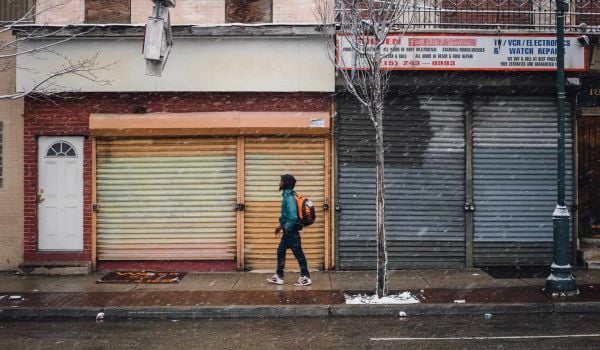Despite the recent momentum around racial equity, Black-led nonprofits in Philadelphia still face barriers in making substantive connections with regional funders, according to a new report.
Titled “Reflecting Forward” and funded by the local chapter of the United Way, the report is a followup to a 2016 study that examined the differences between white-led and Black-led nonprofit organizations.
While the first report started a conversation, the new one is a call to action, its creators said.

“The beauty of this report is in its simplicity, these recommendations are tangible and doable,” said Kelly Woodland, executive director of the national kids activity nonprofit After School All Stars.
Woodland spearheaded both reports, alongside Urban Affairs Coalition CEO Sharmain Matlock-Turner and David Brown, a media professor at Temple University.
The new study’s findings were compiled from interviews with 16 Black executive directors, CEOs, and presidents at both new and well-established organizations. Half of interviewees were Black women, the report said, and more than half were the first Black leaders at their organizations.
Together, they represent a larger group: the Black Nonprofit Chief Executives of Philadelphia (BNCEP), which has grown from 24 to 90 members since launching in June 2020.
Crystal Cubbage, director of school resource nonprofit Philadelphia Learning Collab, is a member of BNCEP. When the report was introduced Monday at P4 Hub, a community space by and for people of color, she got emotional.
“I’m very hopeful” it will lead to more investment, Cubbage said, adding that she has already contacted funders about the study.
What does the study say? “Reflecting Forward” offers three main recommendations:
‘Get to know us’
Many of the leaders interviewed said they faced challenges in developing “respectful and fruitful” relationships with regional funders. The report challenges funder organizations to take the initiative in fixing this gap.
“Raise your awareness of Black-led organizations and what they’re doing,” one interviewee told the researchers. “Then ask: ‘So why have I not heard of them? Why am I not interacting with them? How does what they do align with what we’re funding?’”
As a solution, Black nonprofit leaders recommended “intentional networking opportunities with philanthropic leadership.” Think lower-stakes meetings focused on relationship building, the report says, and not pitch competitions that pit nonprofits against one another.
“Reflecting Forward” also makes it clear that Black nonprofit leaders want to be consulted early on in the decision-making process, as funders identify priorities, set agendas, and begin thinking about obstacles.
‘Embrace trust-based philanthropy’
Changing the focus of grant-making from projects that demand immediate results to longer-term initiatives would serve many nonprofit organizations well, per the report.
Interviewees charged funders to ask grantees “‘What do you need to be successful in five years?’ [instead of] looking at year-to-year funding.” This, many believe, will signal a stronger commitment.
Unrestricted, multi-year, and transformative gifts can further fiscal stability and infrastructure at nonprofits, the report says, which classifies these types of grants as “trust indicators.” Also recommended: streamlining the application and reporting process, as suggested by the advocacy initiative Trust-Based Philanthropy Project.
During the peak of the pandemic, many interviewees said, their agencies were strained as they shifted services to address communities’ critical needs for healthcare access, food, and housing.
Some leaders reported losses in giving, but others said giving increased when funders “became nimbler” in their guidelines. Still, many wondered if these expectations had an expiration date.
“Too often,” the study says, “sensitivity to the issues of Black folks has a shelf life.”
‘Trust Black leaders’
Nearly all the leaders interviewed for the study reported that they’ve been subject to racial or gender bias and discrimination.
“Stop treating Black leaders and Black-serving organizations as incompetent and risky,” the report asks. Instead, Black nonprofit heads are looking for funders who will “prioritize their organizations unapologetically.”
Additionally, executives request that funders increase Black representation in philanthropic leadership and “unequivocally support Black women leaders.”
Nationwide, about 79% of board chairs and executive directors are white, according to a 2021 study by the Urban Institute.
Mindy Aldridge, who said she’s the only white person on the board of the Radnor-based Nelson Foundation, shared her foundation’s support of the findings and detailed some of the changes it’s made.
After having conversations around racial equity spurred by the murder of George Floyd, she said, Nelson hired a Black-led local firm to develop a strategic plan reflective of their “commitment to equity work.”
Now, she challenges other funders to add “significant Black community members” to their boards. “One doesn’t cut it,” Aldridge said.
Expect another report in 5 years
Woodland, the director spearheading the studies, said all the stakeholders are working to ensure the report gets in the hands of people who make decisions around funding us.
“It’s not rocket science, but it does require a commitment,” Woodland said, adding that there will be another follow-up to this report in five years.
This story originally appeared in Billy Penn and is reprinted here as part of Broke in Philly, a collaborative reporting project on economic mobility. Next City and Billy Penn are two of more than 20 news organizations producing Broke in Philly; read more at brokeinphilly.org or follow at @brokeinphilly.
















